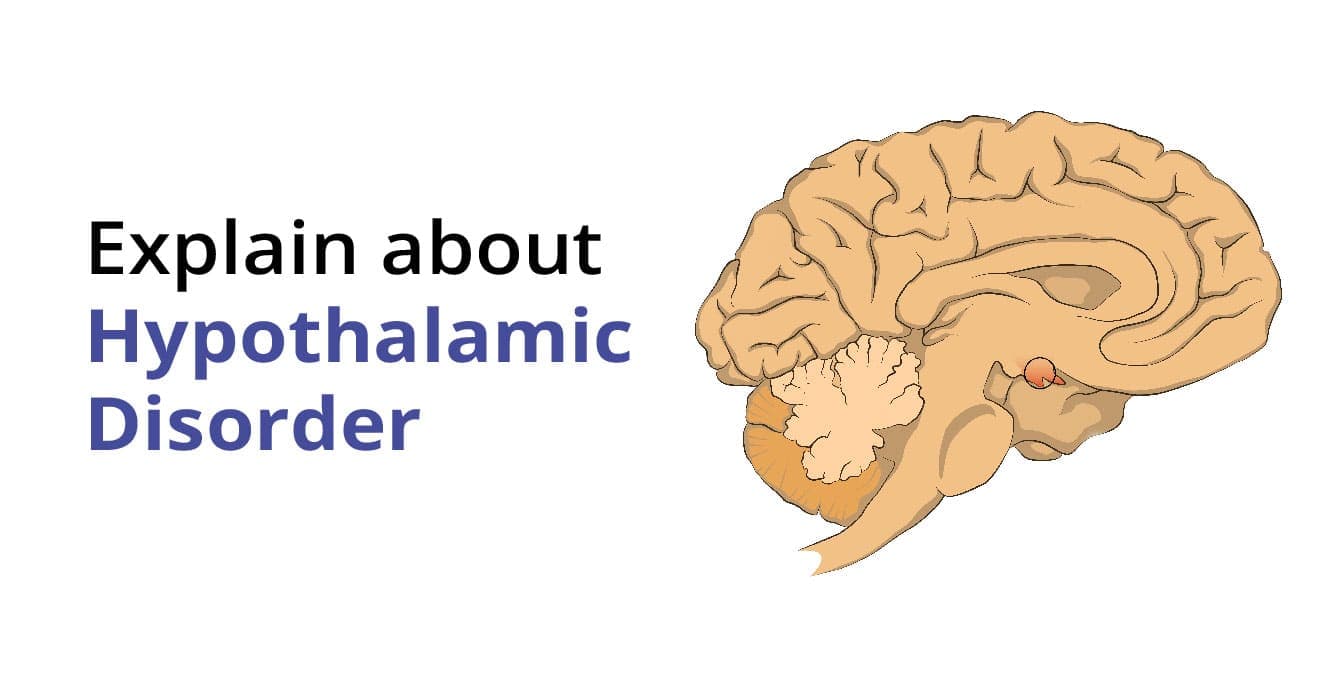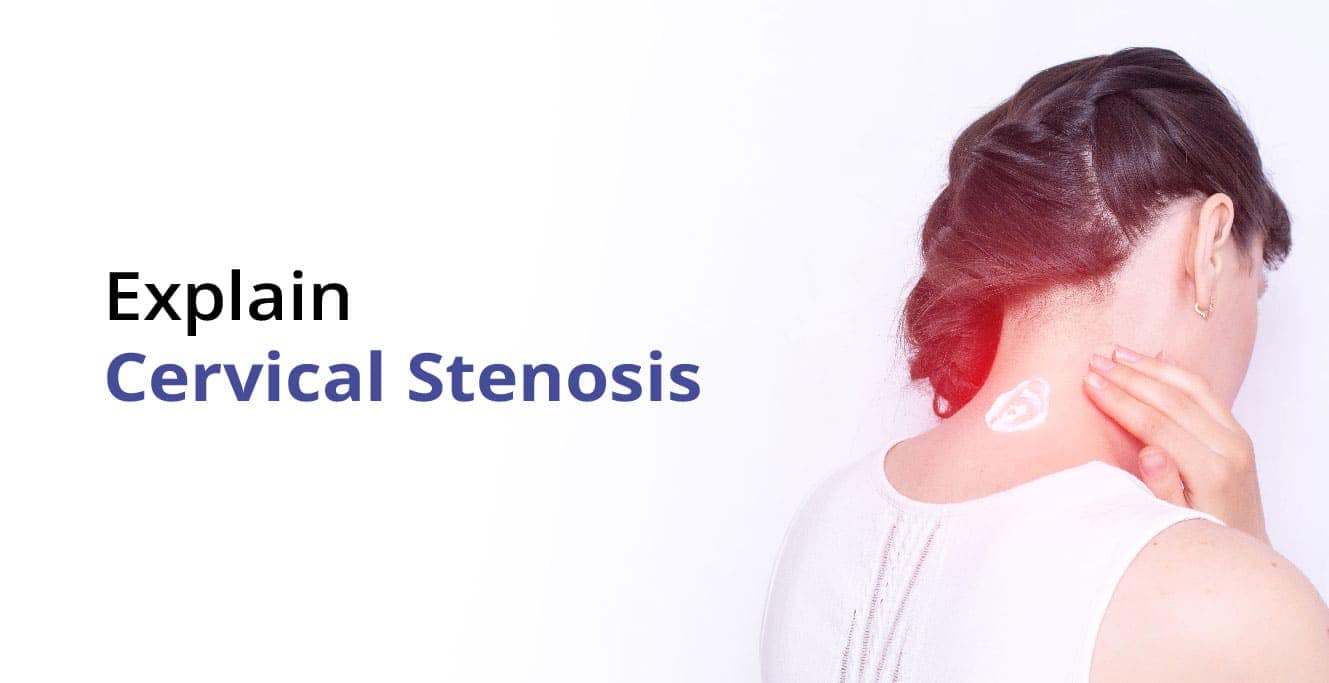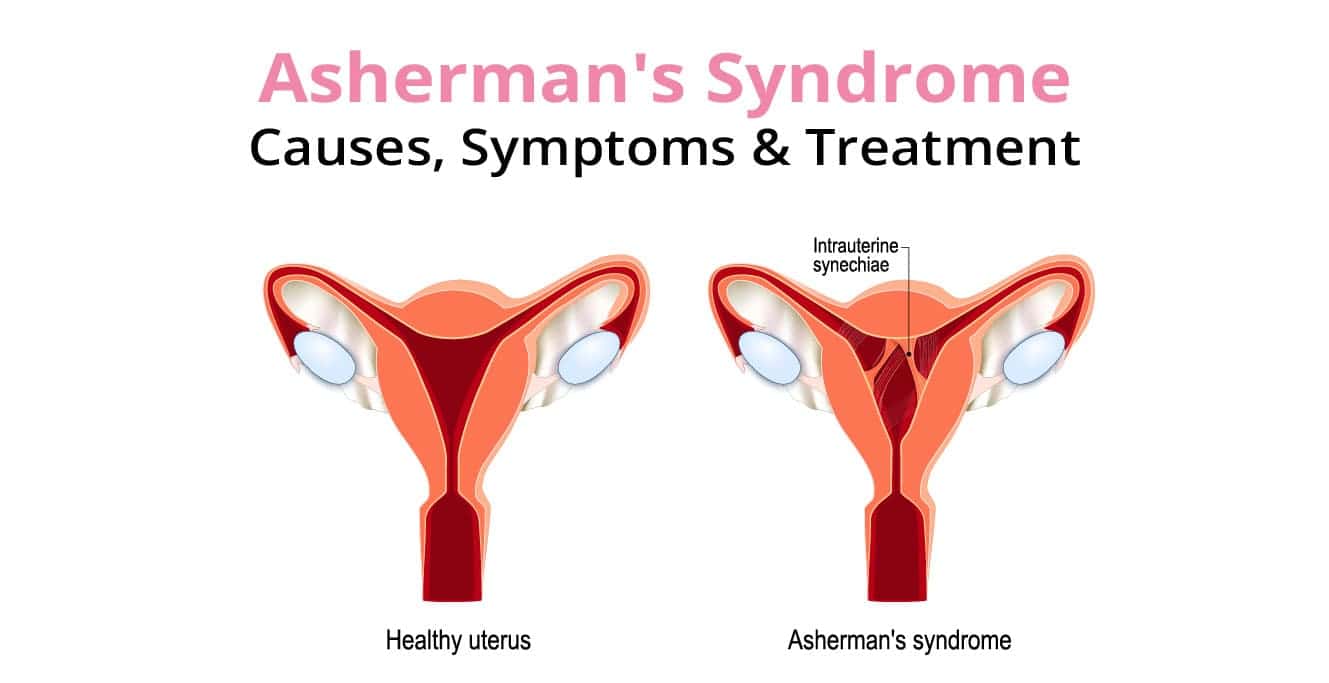
What is Hypothalamic Disorder and its Types?

Table of Contents
- What is Hypothalamic Disorder?
- What are some hypothalamic disorders?
- – Hypothalamic obesity
- – Hypothalamic amenorrhea
- – Hypothalamic-pituitary disorders
- – Diabetes Insipidus
- – Prader-Willi Syndrome
- – Kallmann Syndrome
- – Hypothalamic syndrome
- – Hypopituitarism
- – Acromegaly and gigantism
- – Excess antidiuretic hormone
- – Central hypothyroidism
- – Excess prolactin (hyperprolactinemia)
- What are the causes of hypothalamic disorder?
- What is the treatment for hypothalamic disorder?
- How is hypothalamic disorder diagnosed?
- What are the complications of hypothalamic disorder?
- Conclusion
- FAQs:
What is Hypothalamic Disorder?
Hypothalamic disorder refers to a disorder in which the hypothalamus in the brain does not function as it normally should. This usually happens due to trauma or injury to the head that affects the brain or a genetic or congenital condition affecting the hypothalamus.
The hypothalamus is a gland in your brain that releases hormones. These hormones are released to the pituitary gland, which releases them to different body parts, such as the thyroid, adrenals, ovaries, and testes.
The hormone levels in the body serve as feedback to the hypothalamus and signal it to release or stop releasing a hormone.
The hypothalamus controls many important bodily functions, such as hunger and thirst.
What are some hypothalamic disorders?
Hypothalamic disorders include the following disorders:
– Hypothalamic obesity
This occurs due to problems with the hunger function controlled by the hypothalamus. It can lead to abnormal weight gain, appetite increase, and issues with metabolism.
– Hypothalamic amenorrhea
This refers to a hypothalamic disorder that causes a woman to stop having her period. It happens when her body does not get enough nutrition or enough energy from the food she is eating.
This leads to the release of cortisol, which affects the hypothalamus, and the release of female sex hormones.
– Hypothalamic-pituitary disorders
These disorders affect the hypothalamus or the pituitary gland and affect the interactions between the two. Since they interact so closely, a disorder affecting one usually affects the functioning of the other.
– Diabetes Insipidus
This condition causes the hypothalamus produces less vasopressin, also called antidiuretic hormone. Vasopressin is a hormone that stimulates the kidneys to balance fluid levels in the body.
This disorder leads to excessive thirst and frequent passing of urine.
– Prader-Willi Syndrome
This is an inherited disorder that causes the hypothalamus to have issues with recognizing that you have eaten enough. The sensation of fullness does not come, and there is a constant urge to eat.
This can lead to unhealthy weight gain and obesity.
– Kallmann Syndrome
This syndrome is genetically connected with hypothalamic disease. It causes developmental problems in children and leads to delayed puberty or the absence of puberty in children.
– Hypothalamic syndrome
This is a hypothalamic disorder caused by an underlying disease that affects the proper functioning of the hypothalamus.
– Hypopituitarism
This condition is caused because of damage to the pituitary gland or hypothalamus, which directly impacts the pituitary gland’s functioning.
– Acromegaly and gigantism
These are disorders that affect body growth by affecting the pituitary gland. They cause the pituitary gland to release excess growth hormone.
– Excess antidiuretic hormone
This occurs when excess amounts of antidiuretic hormone (vasopressin) are released due to a hypothalamic disorder. It can lead to stroke, haemorrhage, and infections.
– Central hypothyroidism
This rare disorder affects the hypothalamic and pituitary glands and commonly occurs due to a pituitary tumour.
– Excess prolactin (hyperprolactinemia)
In this condition, a hypothalamic disorder leads to reduced dopamine (a chemical made in the brain). This causes an abnormal increase in the levels of prolactin in the body.
Prolactin is a hormone involved in the lactation process, whereby the breast tissue produces milk. The excess prolactin levels lead to irregular periods and infertility.
What are the causes of hypothalamic disorder?
Hypothalamic disorder may happen due to damage to the hypothalamus or genetic conditions that affect the development of the hypothalamus. The causes for it include the following:
- Injury to the head (such as traumatic brain injury)
- Brain surgery
- Brain infection
- A brain tumour that affects the hypothalamus
- Brain aneurysms (a swelling or rupture of a blood vessel)
- Lack of nutrition and weight problems caused by eating disorders or improper diet
- Inflammation caused by stress or consuming too much of saturated fats
- High stress or lack of nutrition leads to the release of cortisol (stress hormone) that affects the hypothalamus
- Surgery of the brain
- Radiation therapy or chemotherapy
- Congenital conditions that affect the brain or hypothalamus
- Inflammatory diseases such as multiple sclerosis
- Genetic disorders such as growth hormone deficiency
What is the treatment for hypothalamic disorder?
Most hypothalamus disorders are treatable. The treatment method would depend on the cause and nature of the disorder.
The treatment can include the following:
- Surgery or radiation for brain tumours
- Hormone medications or injections for hormonal deficiencies or problems like hypothyroidism
- Appetite suppressing medications for overeating
- Diet planning and obesity treatment
- Therapy or lifestyle changes for conditions like eating disorders and high levels of stress
- Fertility treatment for fertility issues arising from hormone imbalance or deficiency
How is hypothalamic disorder diagnosed?
Hypothalamic disorder is diagnosed through various tests. Your doctor will ask you about your symptoms and may ask for details of your medical history, and will suggest certain blood and urine tests and imaging tests based on the symptoms.
The tests to diagnose hypothalamic disorder include the following:
- Imaging tests like magnetic resonance imaging (MRI) scan or a computed tomography (CT) scan to examine your brain
- Tests for various hormones
- Tests for electrolytes or proteins
- Genetic screening tests
What are the complications of hypothalamic disorder?
Hypothalamic disorder can lead to certain serious complications if left untreated. Complications mostly occur due to problems in hormone levels, but they may also arise due to other reasons, such as eating and nutritional issues. Complications may include:
- Infertility
- Erection issues
- Osteoporosis
- Problems with breastfeeding
- Heart conditions
- High cholesterol levels
- Obesity
- Issues with growth and development
Conclusion
Hypothalamic disorder can cause issues with regular bodily functions and the release of hormones. It can cause problems with the regulation of sex hormones in your body (like estrogen and testosterone).
The disorder affects the levels of these hormones in your body, which can impact your fertility.
If you or your partner are concerned about your fertility, it is best to visit a fertility specialist. For the best fertility consultation, treatment and care, visit Birla Fertility and IVF or book an appointment with Dr. Meenu Vashisht Ahuja.
FAQs:
1. What are the symptoms of hypothalamic disease?
The symptoms of hypothalamic disease depend on the condition that you have. However, general symptoms include the following:
- Excessive weight loss or weight gain
- High levels of stress or emotional imbalance
- Low energy levels
- Obesity
- Behavioural concerns
- Electrolyte imbalance that leads to weakness, nausea, and fatigue
- Hormonal imbalance or deficiency
- Problems with growth
- Problems with thinking abilities
- Issues with hunger or thirst (such as excessive hunger or thirst)
2. How is hypothalamic disorder diagnosed?
Hypothalamic disorder is diagnosed through blood and urine tests (to check levels of hormones, electrolytes, or other substances). It is also diagnosed with the help of imaging scans to check the brain.
3. What causes hypothalamic disorder?
Hypothalamic disorder may be caused by an injury that damages the brain. It may also be caused by genetic conditions that affect the development of the brain in a foetus.
4. What are hypothalamic-pituitary disorders?
Hypothalamic pituitary disorders are conditions that affect the hypothalamus or pituitary gland. Since they are so closely connected, a condition that affects either is called a hypothalamic-pituitary disorder.
Our Fertility Specialists
Related Blogs
To know more
Birla Fertility & IVF aims at transforming the future of fertility globally, through outstanding clinical outcomes, research, innovation and compassionate care.
Had an IVF Failure?
Talk to our fertility experts

 Our Centers
Our Centers
















